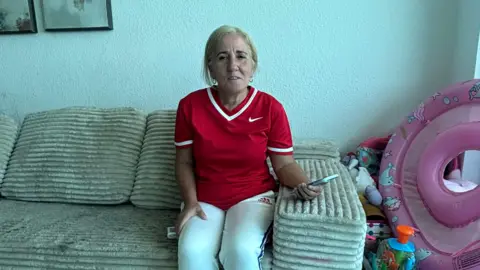The disturbing realities of life inside the 'Alligator Alcatraz' detention center have come to light as it prepares to close amid ongoing legal and social controversies. Yaneisy Fernandez recalls the moment her son, Michael, was taken to the facility, fearing for his safety and well-being. Michael’s situation is emblematic of the distress many families are experiencing as they navigate the complexities of U.S. immigration policy.
The temporary immigration detention center built in Florida's Everglades has quickly become a polarizing symbol of President Donald Trump's immigration policy. Now, just two months after it opened, the Department of Homeland Security announced its impending closure, following a judge's injunction. Critics of the facility have highlighted reports of poor medical care and lack of access to legal representation for detainees.
Reports from families reveal alarming accounts of neglect, including Michael suffering severe medical issues without proper treatment. His mother, Yaneisy, described the distressing conditions he faced, emphasizing the lack of adequate medical assistance. Similarly, Gladys, another family member, recounted her experiences with her husband Marco, who was taken into custody despite pending legal status, leaving her fearful and anxious about his well-being.
While supporters of the facility claim it helped reduce illegal immigration, opponents argue that its existence represents the harsh reality of immigration enforcement in the U.S. As the closure process begins, the debate surrounding immigration detention continues to evoke strong reactions from both sides of the aisle, further complicating the narrative surrounding immigration reform.
The future remains uncertain for many detainees, some of whom have already been relocated to other facilities. Advocates warn that conditions across similar centers may not improve and that the systemic issues present in U.S. immigration enforcement still need to be addressed comprehensively.





















